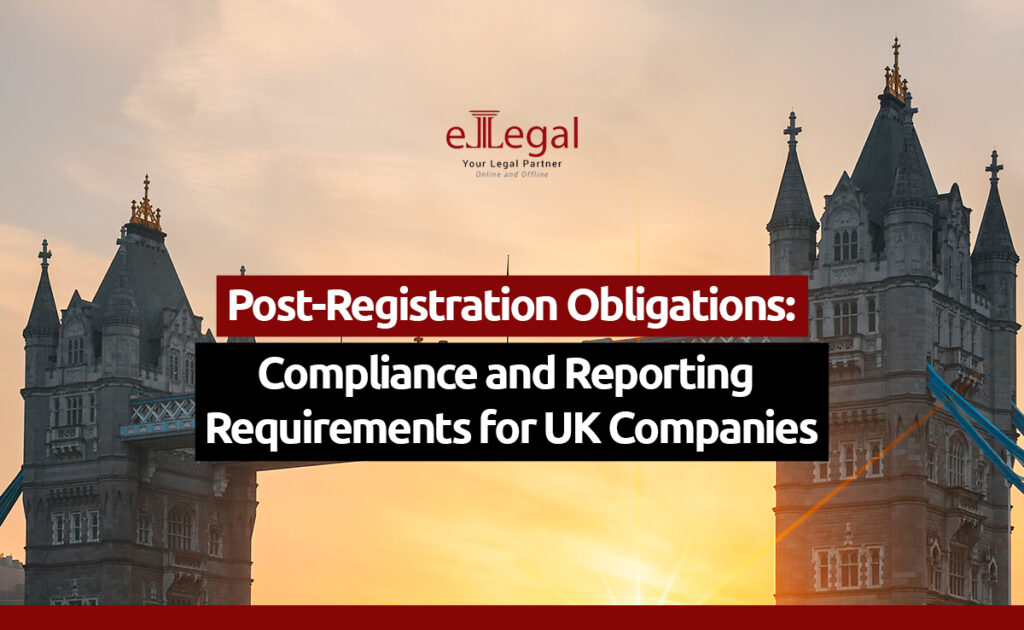Establishing a company in the UK is an exciting venture, but the process doesn’t stop at registration. Following official registration with Companies House, several compliance and reporting obligations must be fulfilled. It is legally required that some information be deposited with the Companies House and HMRC (His Majesty’s Revenue & Customs). Fulfilling these obligations will ensure your company remains on the side of the law and avoid penalties. These obligations majorly require several filings to the appropriate authorities. Such filings include;
- A Confirmation Statement: Every Company once registered is required to file an annual confirmation statement with the Companies House, the purpose of which is to confirm that the company’s details held with the Companies House and which appear on public records are accurate and up to date.
Some of the details contained within a confirmation statement include;
– Company name and registration number
– Registered office address
– Details of directors and secretary (if applicable)
– Shareholders and share capital information
– SIC (Standard Industrial Classification) code(s) indicating the company’s business activities. Additionally, starting from March 5, 2024, any confirmation statement submitted must contain a formal affirmation ensuring that the company’s planned future activities adhere to the law. This stipulation is a fresh mandate established by the Economic Crime and Corporate Transparency Act of 2023.
- Annual Accounts: UK firms must compile and present yearly financial statements to Companies House. These documents offer an overview of the company’s financial well-being and must comply with designated accounting standards.
The Following are statutory accounts that every company in the UK must prepare and file;
- Balance Sheet: A statement of the company’s financial position, listing assets, liabilities, and equity on the last day of the company’s financial year.
- Profit and Loss Account: A summary of the company’s performance, showing income and expenses.
- Directors’ Report: An overview of the company’s activities, performance, and prospects.
- Auditor’s Report: If applicable, this report provides an independent opinion on the accuracy of the financial statements.
A copy of the above-mentioned statutory accounts should also be sent to HMRC, all shareholders of the company, and all who attend the General meetings of the company. Private limited companies must deliver their accounts to Companies House within 9 months after the conclusion of their financial year. The only exemption to this rule pertains to the initial set of accounts, which must be submitted within 21 months of the company’s registration date with Companies House.
- Corporation Tax Returns: All registered companies in the UK must file a Corporation Tax Return with HM Revenue and Customs (HMRC). This return calculates the tax the company owes based on its profits. This must be filed within 3 months of the company commencing any business activity such as employment, advertising, buying, and selling.
However, if your company has been inactive (without any trading activity), you won’t need to submit a tax return if you inform HMRC beforehand.
Key Steps involved in filing a corporation tax return include;
– Register for Corporation Tax: This must be done within three months of starting business activities.
– File the Tax Return (CT600): This must be submitted 12 months after the end of the accounting period it covers.
– Pay Corporation Tax: Payment is due nine months and one day after the end of the accounting period.
- VAT (Value-Added Tax) Returns: Companies with a turnover of £90,000 or more in taxable income annually must register for VAT and submit a quarterly VAT return to HMRC, which can be completed online. Alternatively, companies with turnovers below this threshold may register for VAT at their discretion. A VAT return offers a comprehensive breakdown of the VAT owed on sales and the VAT eligible for reclamation on company expenses. Typically, the discrepancy between these two figures represents the amount due for payment.
Also, note that it is to be filed quarterly.
- PAYE AND Self-Assessment: A company that has employees on a payroll will be required to register under the PAYE (Pay as You Earn) System with HMRC, This is to ensure the precise collection of Income Tax, employee and employer National Insurance contributions, along with other deductions.
- Top of Form
- Bottom of Form
Self-assessment is utilized by the HMRC in situations where the employee involved such as a director or a shareholder has a more complex financial arrangement with the company. The HMRC uses the self-assessment to collect income tax from these individuals on income obtained from dividends and director’s loans among others.
- Changes in Company Details: It is Mandatory to report any changes in the Company’s registered details to the Companies House or HMRC. Such details among others include;
- Change of registered office address
- Appointment or removal of a director or secretary
- Issuance and transfer of shares
- Changes to the Company’s share capital
- Alterations to the Memorandum and Articles of Association
Depending on the industry and business activities, there may be further regulatory requirements. This could include health and safety regulations, sector-specific licenses, and environmental obligations.
Maintaining your company’s legal standing and avoiding penalties requires compliance with post-registration obligations which can be challenging to navigate. Regularly review and update your company’s compliance practices to ensure all legal obligations are met. Consulting professionals such as lawyers and Company registration experts in the UK would help in ensuring compliance with all regulatory requirements. We at eLegal Consultants with our team of experts can help you navigate this complex terrain. Contact us today.




